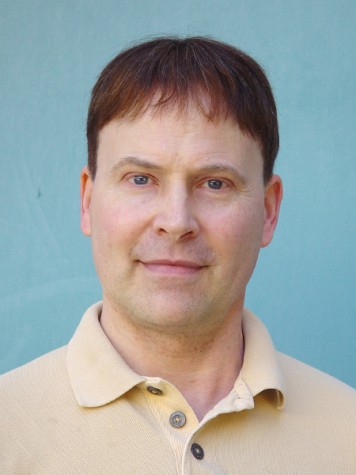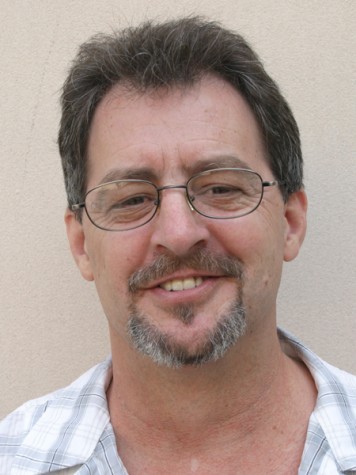Selected out of a pool of 35 Glendale College applicants, 13 advanced organic chemistry students this winter synthesized six new compounds for drug delivery platforms typically used by pharmaceutical companies.
A drug delivery platform is a chemical agent used for oral, transdermal, intravenous, or nasal delivery to a patient.
This was the second winter session that researcher and GCC chemistry instructor Asmik Oganesyan selected students to work on a specific project. They combined research and lab skills in a one-unit, graduate-program-level independent study course.
The final 13 students were chosen by Oganesyan based on their enthusiasm for science and their excellence in previous work. Twelve students were enrolled and one had a conflict with his calculus class but managed to show up consistently.
“I learned to transfer information from my head to my hands, to succeed and be proud, but also to fail and try again and again and again,” said chemistry major Adena Issian. “All the ups and down made us better researchers – a team of great minds that helped one another but also competed in groups.”
Issian hopes to follow in Oganesyan’s footsteps by earning a doctorate in organic chemistry and becoming a college professor.
Students call Oganesyan “Dr. DMSO” because dimethyl sulfoxide (DMSO) is a “mean” solvent that dissolves anything. Though she may be the best chemistry professor they have ever had, she is very demanding and will dissolve any social life students may have planned outside of the lab. Also, “DMSO” sounds like “Dear Mrs. O.”
The dedicated students were to meet from 8 a.m. to noon in Room 216 of the Arroyo Seco building but were so eager they arrived at 7:30 and stayed until Oganesyan kicked them out around 2 p.m.
Nader El-Shami, preparing for a career as a forensic scientist said, “My philosophy is to be prepared for the experiments. If you come to the lab prepared, you will obtain better results and the lab will be more enjoyable.”
The research goal was the synthesis of new compounds such as those developed by pharmaceutical companies like Johnson & Johnson.
“Projects of this difficulty are attempted in Ph.D-level research, and our students succeeded in learning new techniques and producing these molecules in such a short period of time,” said Oganesyan proudly.
Chemical engineering major Pedro Kim, who plans to pursue a doctorate at MIT, said he used to dread chemistry in high school until he studied with Susan Gendreau at Crescenta Valley High School. From then on, chemistry was his true love.
“Our team chemistry” evolved while focusing on this project,” said Kim. “The support we encountered in one another kept (the whole team) going past the tiring hours, and the repetitive tasks (such as isolating molecules actually) became rather enjoyable!”
Be prepared to fail 80 percent of the time, said Oganesyan. Isolating molecules can be unpredictable. “We had bad failures, but nobody felt like a failure,” she said. “It’s important to learn from those failures, too.”
She said her advice in the lab is to always take good notes so the experiment can be repeated to get the exact same results: “Words are cheap. Show me your data.”
“Once in a while when your chemistry works, you’re the happiest person in the world,” said Oganesyan. “You’re not humble; you brag about it because you deserve to. Research is all about proving a concept.”
Chemistry major Narega Nazarian, who is planning to earn her doctorate and become a pharmacologist, said the project helped her improve her lab skills, her data analysis and her ability to work in a group.
She said now that she understands the chemical reactions on a deeper level, she feels more prepared for future research programs.
Biology major Arman Agopian, who intends to become a cardiovascular surgeon, said, “It gave me a sense of scientific satisfaction, something which I have been searching for since I was a young boy.”
The class was selected to present its findings before the undergraduate conference at UC Irvine (UCI) on March 26 and is waiting for a response from Stanford. The research team is planning to publish its results in the Journal of the American Chemical Society.
Aspiring surgeon Gnel Pivazyan, who has been doing research in a biology lab at USC for the past 10 months, said, “Experiment is like a filter. You pour in several hypotheses that [Mother Nature] may or may not validate, and you collect those ones for which Mother Nature gives her OK.”
The much needed, often overlooked career in scientific research is a worthwhile goal to pursue. If students are forced to study chemistry just to get into medical or pharmacology school, they might be fortunate enough to meet Oganesyan and accidentally fall in love with organic chemistry research.
To contact Oganesyan, interested parties can email her at [email protected] or visit her web page: http://web.me.com/aoganesy/Site/Welcome.html.


